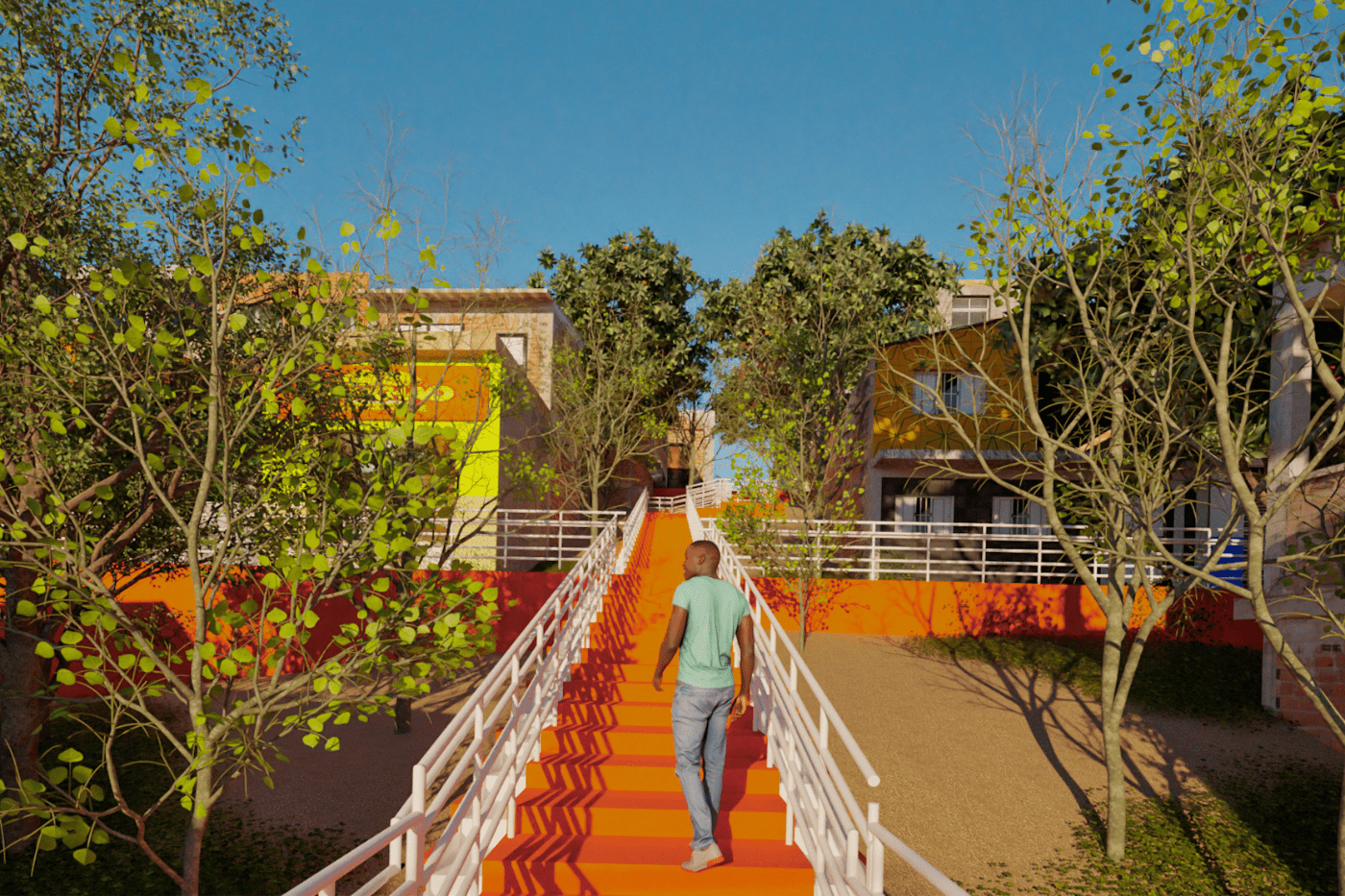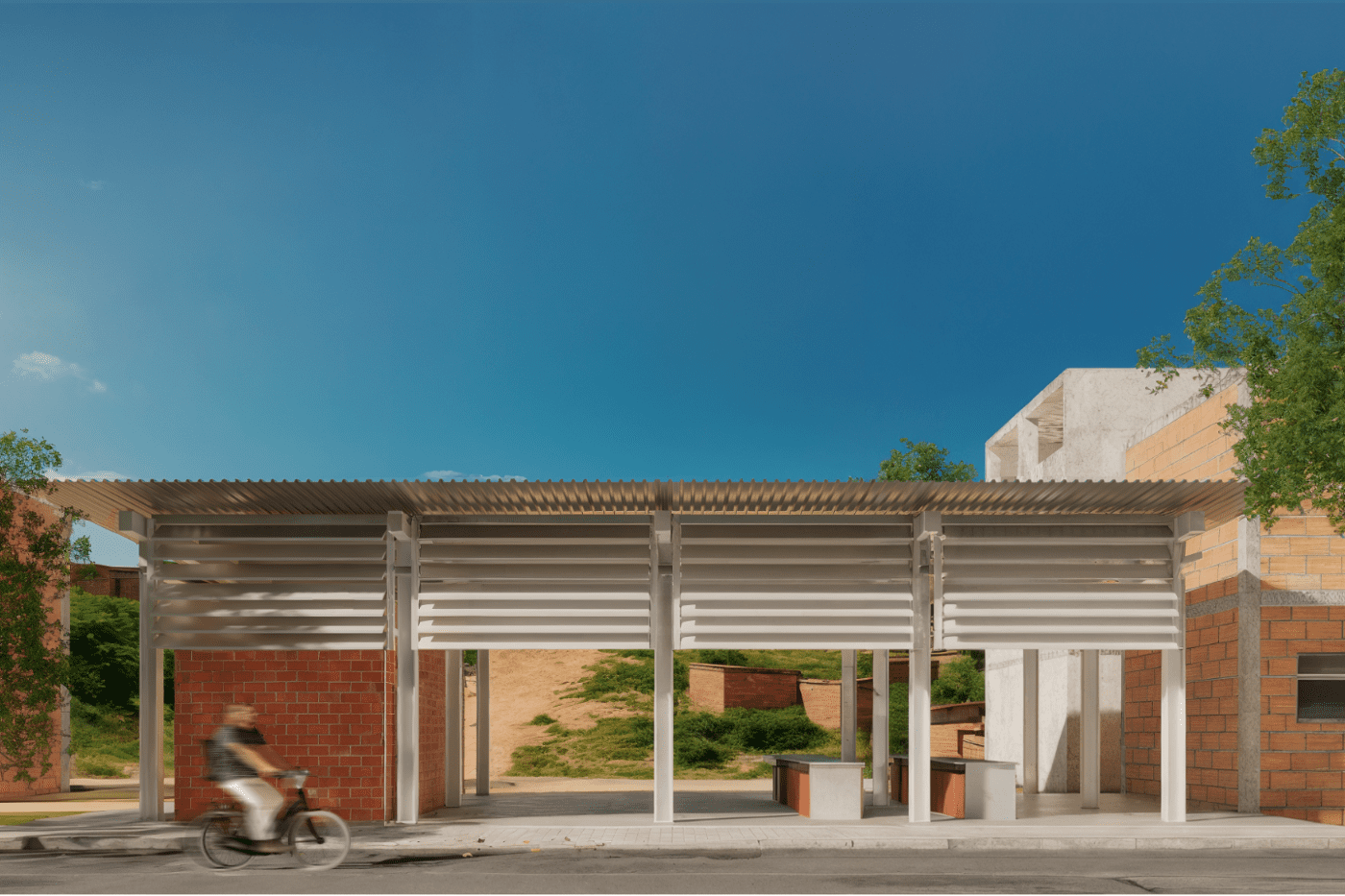Project implementation: Brazil
Project development: Brazil
Students: Juan S., Érica C, Darliane G, Luan G, Luana P, Eduarda R, Mateus C, Jefferson F Sá
The climate emergency disproportionately affects marginalized populations—those with least access to adaptation and recovery resources. The intense impacts are not only the result of climate-related events, but also socially produced by exclusionary urbanization. This vulnerability is evident in the Joana D'Arc and Morro das Placas communities, in the Vicente Pinzón neighborhood of Fortaleza.
Located in an area of steep slopes and unstable soils, these territories present themselves as consolidated densities that are environmentally and socially fragile. The inherent risk of the communities' location is compounded by precarious housing and a lack of basic infrastructure, such as the absence of a drainage network and the scarcity of green and open spaces, reflecting a historical process of socio-spatial segregation.
Considering the context of environmental injustice, the integrated approach intervention proposes infrastructure and housing solutions in communities, incorporating them into the urban fabric and reversing the risk scenario into a resilient and responsive project that adapts to the local reality.
The project proposed solutions to facilitate drainage and basic sanitation, such as widening alleys, installing bioswales, and creating a support area for waste management. Considerations also included the installation of retaining walls to stabilize slopes often prone to landslides, and the construction of staircases to facilitate mobility in previously impassable areas.
Understanding that climate justice also relates to the right to the city, open spaces and leisure areas were designed using nature-based solutions, as well as the implementation of public facilities. For housing, in a combined strategy of housing improvements and nearby resettlement, passive environmental design solutions were considered for renovations and progressive typologies for new housing.
The proposals were developed collectively to address communities resisting exclusion and erasure. The team, comprised of Darliane Gomes, Eduarda Mércia, Érica Correia, Jefferson Freire, Juan Sousa, Luan Baltazar, Luana Gabrielle, Mateus Costa, and Sá Nogueira, all Architecture and Urban Planning students at the Federal University of Ceará (UFC), sought to demonstrate social responsibility as public university students by focusing on marginalized and invisible areas of the debate, devising possible scenarios for improving the quality of life in these areas.
Sharing experiences in research programs and grants focused on technical advice in architecture and the city, climate change and cultural heritage, the team has interests in History and Theory of Architecture and Urbanism, Technologies Applied to Architecture and Urbanism, Urban Planning, Technical Advice and Social Housing.




